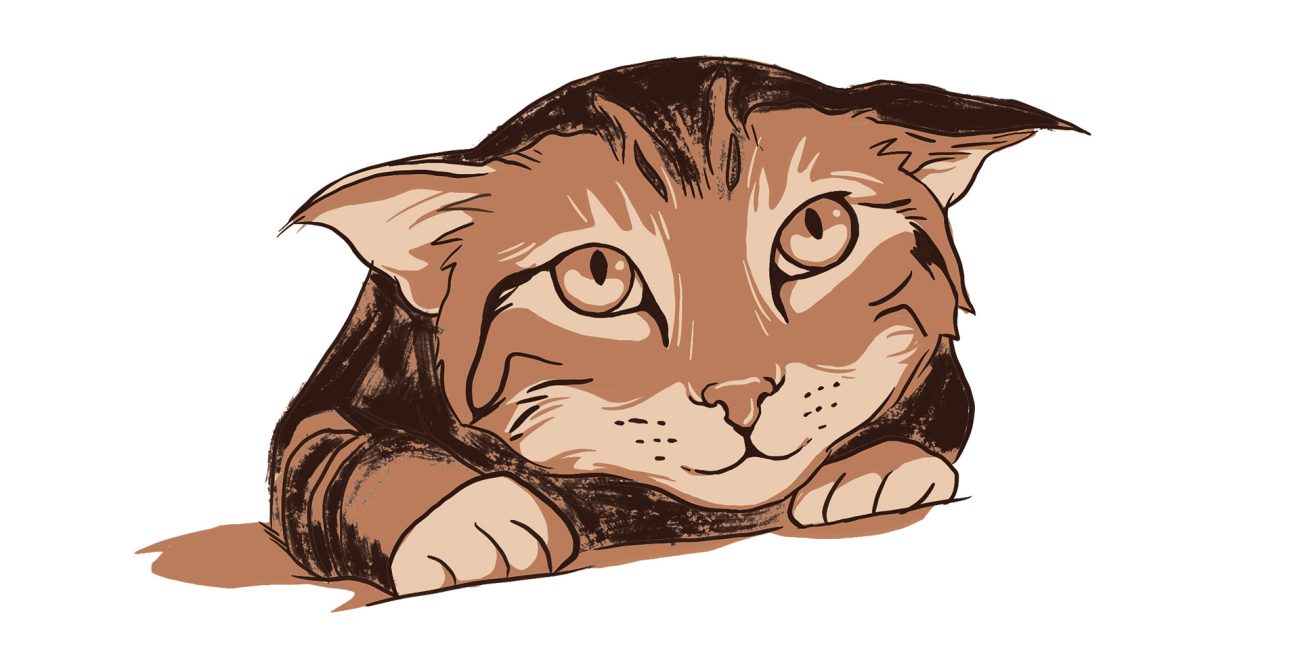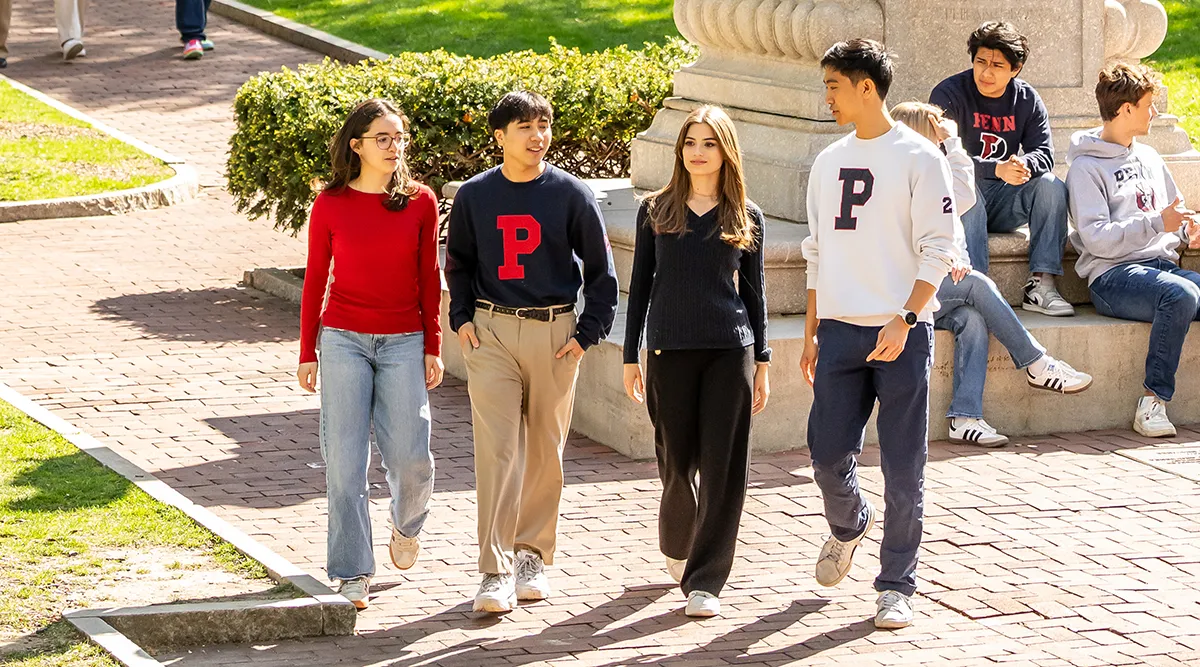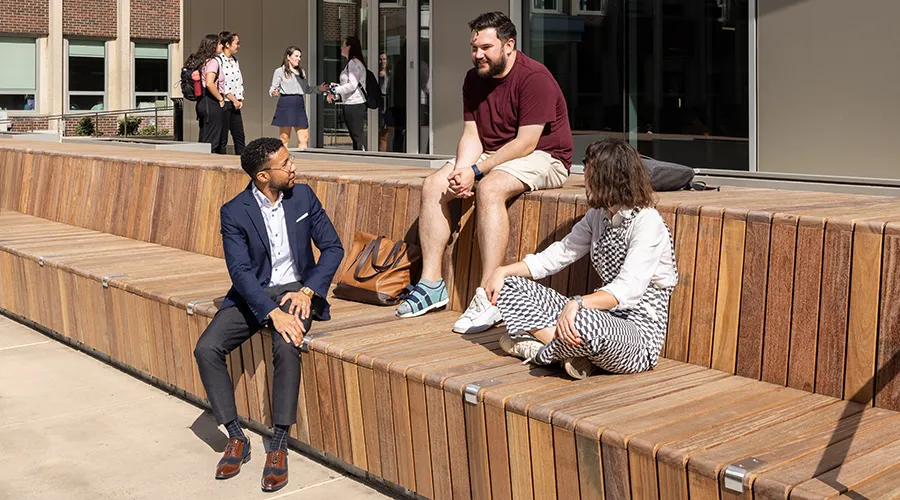Karen Miura, CW’68, has seen the difference that world-class veterinary care has made for her cats, along with the dogs, birds, horses, snakes, and other animals that receive treatment at Penn’s School of Veterinary Medicine (Penn Vet).
A Lasting Legacy
Four donors share how creative gift planning strategies enabled them to make a long-term impact on programs close to their heart
When Dr. Miura heard about the School’s Good Samaritan Fund, she was eager to help. The Good Samaritan Fund provides some financial assistance to qualified pet owners who may not be able to afford the cost of care for their companion animals.
“I’ve spent a lot of time in the waiting room of the Ryan Veterinary Hospital intensive care unit,” she says. “Fellow pet owners have shared their stories with me. The most heartbreaking are the stories of those who must choose what to do when they can’t afford medical care for their cherished pets.”

The need for the Good Samaritan Fund is both immediate and ongoing. In recognizing this, Dr. Miura took a two-part approach to her giving by making a Qualified Charitable Distribution (QCD) from her traditional IRA for immediate impact. She then set up a Charitable Gift Annuity (CGA) that will provide her with annuity payments for life and ensure future support for Penn, a win-win for Dr. Miura and for the animals receiving care at Penn Vet.
Creatively using retirement plan assets to make outright gifts and set up a CGA puts Dr. Miura’s savings to work in multiple ways to support what is most meaningful to her while making an enduring impact at Penn Vet. Dr. Miura’s creative approach is just one of many ways to establish a planned gift that will make a difference at Penn.
Planned gifts help push the boundaries of innovation and ensure that the University’s mission of excellence continues. There are a variety of giving strategies available to meet personal planning and philanthropic goals while creating your Penn legacy.”Marcie Merz
Executive Director of Gift Planning
Here, fellow members of the Harrison Society share how their planned gifts have made a meaningful difference for their families, their finances, and for Penn.
 Nisha, W’96, PAR’25, and Brian Hurst, W’94, PAR’25
Nisha, W’96, PAR’25, and Brian Hurst, W’94, PAR’25
Gift planning isn’t just for retirees. A timely planned giving presentation inspired Nisha and Brian Hurst to support the Social Justice Scholars Program at the School of Social Policy & Practice (SP2). Using highly appreciated securities, the couple created a Charitable Remainder Trust to help make graduate school more accessible for students with a passion for social justice. The couple—who are still in the workforce—turned an asset with a high tax burden into a powerful philanthropic tool.
 Vicki Lachman, Nu’72, GNu’74, CGS’02
Vicki Lachman, Nu’72, GNu’74, CGS’02
With a plan, assets can be turned into directed support that makes a difference. Vicki Lachman’s decades-long nursing career culminated in multiple graduate degrees and a rewarding professional chapter in bioethics. By establishing a charitable bequest, she’s planning to be remembered in a profoundly personal way through the Dr. Vicki D. Lachman Term Professorship in Bioethics at Penn Nursing. This professorship will enable the School to attract top talent in bioethics, support cutting-edge academic scholarship, advance the field of nursing, and benefit students for generations to come.
 J. Paul Decker, MD
J. Paul Decker, MD
Gift planning doesn’t necessitate choosing between family and philanthropy. Dr. Decker was a longtime member and eventual Chair of the Department of Pathology at Pennsylvania Hospital. A testamentary Charitable Remainder Trust enabled Decker, upon his death in 2008, to provide an annual income to his partner. When his partner passed in 2022, the remainder of the trust was divided between Pennsylvania Hospital and the church where Decker was a congregant.
The Harrison Society exists to thank and acknowledge the generosity of all who have named the University of Pennsylvania as a beneficiary of a will, living trust, retirement plan, or life insurance policy, or have set up a life income gift that benefits Penn in the future. The Society currently has over 5,900 members ranging in age from 21 to 105 years.
Gift planning offers a variety of ways for individuals to pair philanthropy with smart financial planning. To learn more, contact Penn’s Office of Gift Planning at (215) 898-6171 or giftplan@dev.upenn.edu or visit the Office of Gift Planning website.






